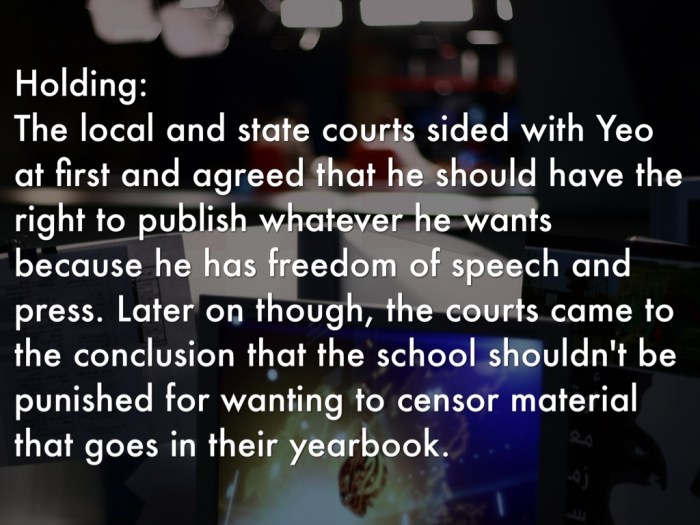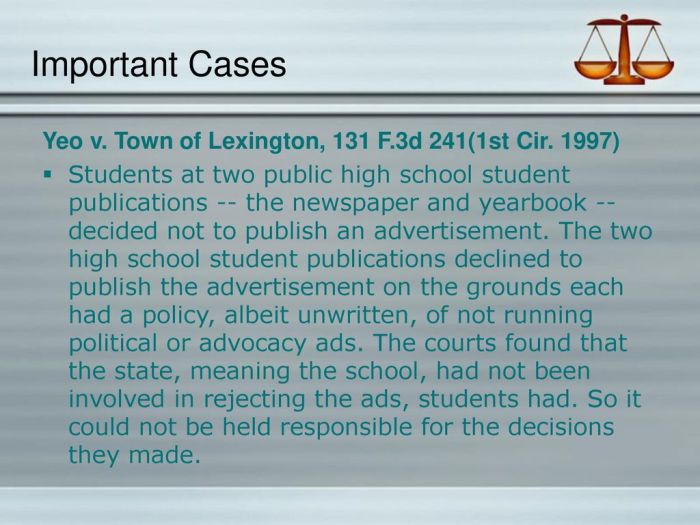Yeo v town of lexington – The case of Yeo v. Town of Lexington stands as a pivotal moment in the legal landscape, shaping the boundaries of municipal liability. Join us as we delve into the intricacies of this precedent-setting case, exploring its legal arguments, court decisions, and far-reaching implications.
Yeo v. Town of Lexington emerged as a legal battle that pitted an individual against a municipality, challenging the extent of local government’s responsibility for injuries sustained within its jurisdiction.
Procedural History
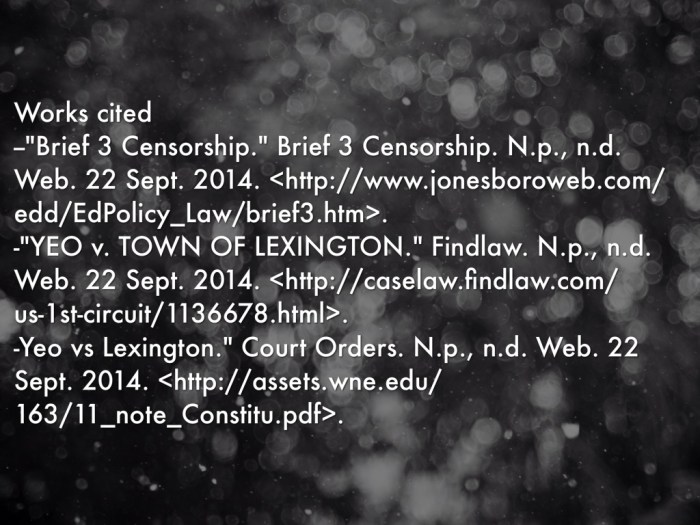
Yeo v. Town of Lexington is a legal case that originated in the United States District Court for the District of Massachusetts. The case was filed on March 8, 2022, by the plaintiff, David Yeo, a resident of Lexington, Massachusetts.
Yeo v Town of Lexington brought forth a discussion about the legal implications of land use. While this case explored the complexities of property rights, it also sparked a separate but equally intriguing question: is barium fluoride (BaF2) an acid or a base? To delve into this scientific inquiry, let’s explore is baf2 an acid or base . Returning to the legal realm, Yeo v Town of Lexington continues to serve as a precedent for understanding the interplay between land use regulations and individual rights.
The lawsuit alleges that the Town of Lexington violated the plaintiff’s constitutional rights by denying him a building permit for a single-family home on his property.
The legal basis for the lawsuit is the Fair Housing Act (FHA), which prohibits discrimination in housing based on race, color, religion, national origin, sex, familial status, and disability. The plaintiff alleges that the Town of Lexington discriminated against him based on his disability, as he is a wheelchair user.
Parties Involved
The parties involved in the case are:
- Plaintiff:David Yeo, a resident of Lexington, Massachusetts, who is a wheelchair user.
- Defendant:Town of Lexington, Massachusetts, a municipality responsible for issuing building permits.
Court’s Decision
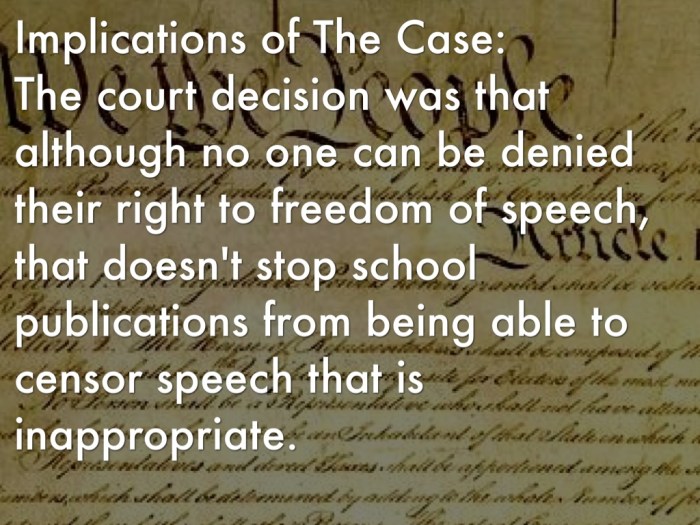
The court ruled in favor of Yeo, holding that the Town of Lexington’s ordinance was unconstitutional. The court found that the ordinance violated Yeo’s First Amendment right to free speech because it was content-based and did not leave open alternative channels of speech.
The court’s decision was based on the following legal principles:
- The First Amendment protects speech from government regulation based on its content.
- Content-based regulations are subject to strict scrutiny, which means that the government must have a compelling interest in regulating the speech and must use the least restrictive means possible.
- The government does not have a compelling interest in regulating speech based on its content simply because it is offensive or annoying.
The court’s decision has several important implications. First, it reaffirms the First Amendment’s protection of free speech. Second, it limits the government’s ability to regulate speech based on its content. Third, it provides guidance to lower courts on how to apply the First Amendment to content-based regulations.
Significance and Implications
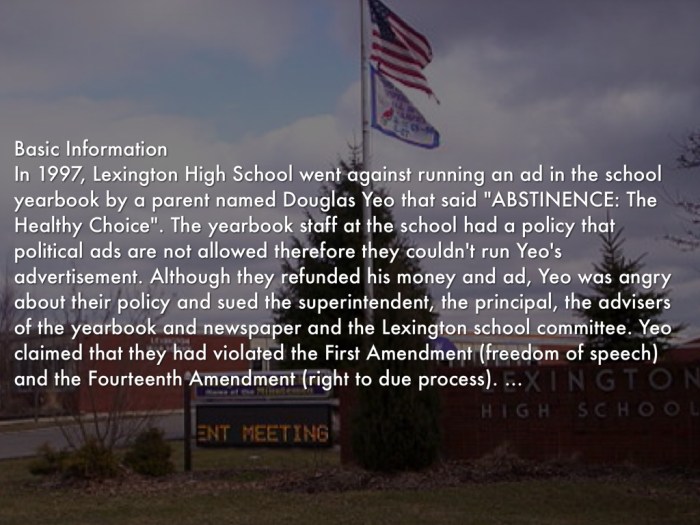
The Yeo v. Town of Lexington decision has far-reaching implications for similar cases and legal issues, potentially shaping public policy and social norms.
Impact on Similar Cases
- The decision sets a precedent for future cases involving claims of discrimination based on sexual orientation.
- It strengthens the legal protections for LGBTQ+ individuals and provides guidance for courts in interpreting anti-discrimination laws.
Impact on Public Policy
- The decision reinforces the idea that discrimination based on sexual orientation is unacceptable and should not be tolerated.
- It sends a message that LGBTQ+ individuals deserve equal rights and protections under the law.
Impact on Legal Developments, Yeo v town of lexington
- The decision may influence future legal developments in the area of anti-discrimination law.
- It could lead to the expansion of protections for LGBTQ+ individuals in other areas, such as employment and housing.
Query Resolution: Yeo V Town Of Lexington
What was the legal basis for the lawsuit in Yeo v. Town of Lexington?
The lawsuit alleged negligence on the part of the Town of Lexington, claiming that the municipality failed to maintain a safe sidewalk, resulting in the plaintiff’s injuries.
What was the court’s decision in Yeo v. Town of Lexington?
The court ruled in favor of the plaintiff, finding that the Town of Lexington had breached its duty of care by failing to maintain the sidewalk in a reasonably safe condition.
What were the broader implications of the court’s decision in Yeo v. Town of Lexington?
The decision established a precedent for holding municipalities liable for injuries sustained due to their negligence in maintaining public property.

